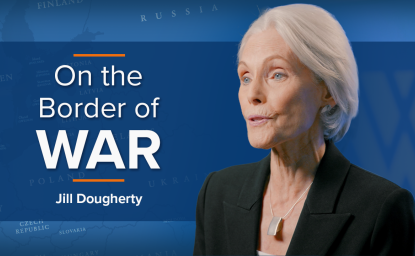Today's United Nations Security Council (UNSC) meeting is occurring against the backdrop of an inescapable truth: the U.S. and the international community are much more adept at responding to the Arab Spring (Egypt and Tunisia) countries with relatively coherent state structures undergoing largely peaceful transitions than to the Arab Winter (Libya and Bahrain) where tough and encumbering decisions are required.
The United States in particular is now confronting two difficult wintry mixes. In Bahrain, American values – support for peaceful protests and democratization – clash with American interests – Bahrain (as a strategic asset furthering US interests in oil, Iran and Afghanistan, and stability in the Gulf) and keeping on the right side of Saudi Arabia, a major swing oil producer. The objective here is to keep Bahrain afloat and stable without jeopardizing stability in nearby Saudi Arabia..
In Libya, where U.S. rhetoric has exceeded its willingness to act, the United States is now under greater pressure to do something concrete to stop Qadhafi from rolling up the rebels. The objective here, unlike Bahrain, is ultimately to get rid of his regime.
But here, decisive action is limited by a ticking clock, the need for multilateral coordination, and the fear of taking steps that could lead to full scale intervention. If the UNSC manages to authorize and provide cover for military actions, they will likely be geared to an interim goal: producing a compelling stalemate through a no fly zone, possibly air strikes, and bucking up the opposition to break Qadhafi's momentum.
But what some have called a hurting stalemate designed to check or even reverse some of Qadhafi's gains would only be the beginning of a longer term containment strategy to keep Qadhafi in the box. Sound familiar? The United States may well face a very long movie playing out against the backdrop of a still determined regime, a divided Libya, and a largely unknown and fractious opposition. And in Bahrain it will face a continuing stalemate as well with a ruling family that has lost credibility, a Shia community more grieved and angry, a Saudi Arabia which opposes real political reform and an Iran eager to stir an already boiling pot.
By Aaron David Miller
Reporters may reach Aaron David Miller at 202-390-4207 (cell) or 202-691-4040 (office), or by e-mail at aaron.miller@wilsoncenter.org.
Read more about Aaron David Miller. His forthcoming book is Can America Have Another Great President? (Bantam Books, 2012)
Explore More
Browse Insights & Analysis
Distinguished Fellow Carrie Filipetti on the rapidly evolving situation in Venezuela

Combatting Cybercrime: Defending America's Security and Financial Future

Video: On the Border of War
